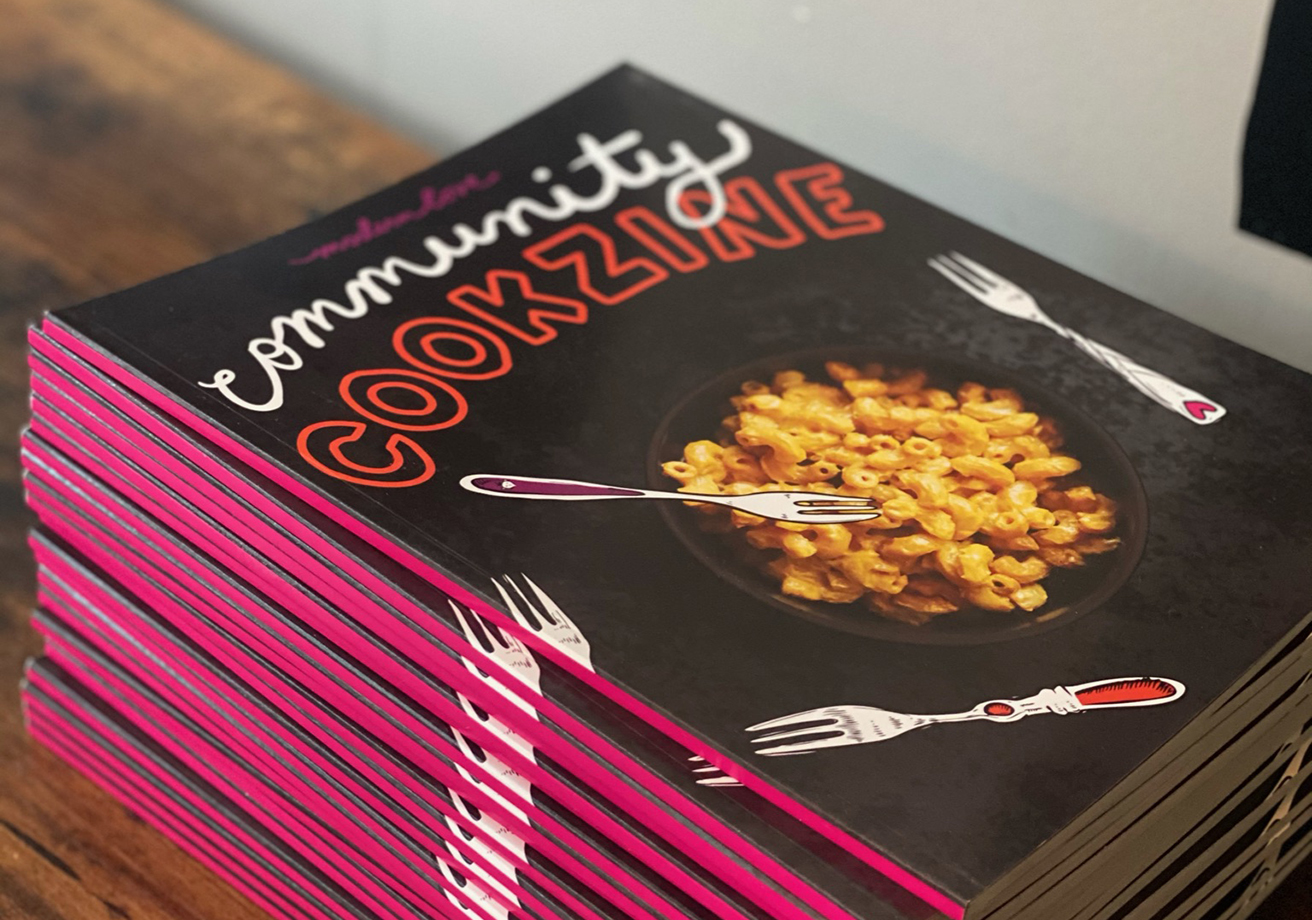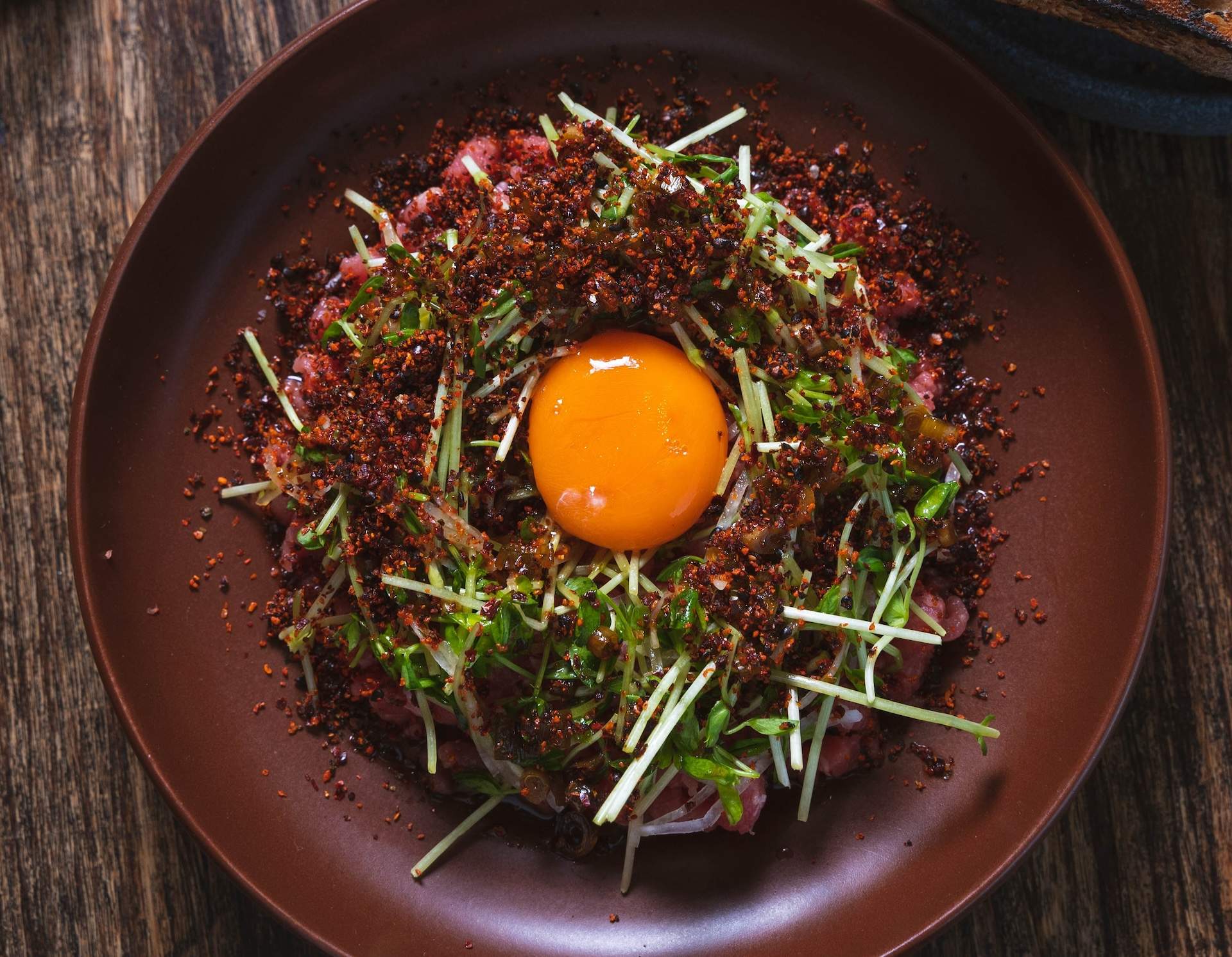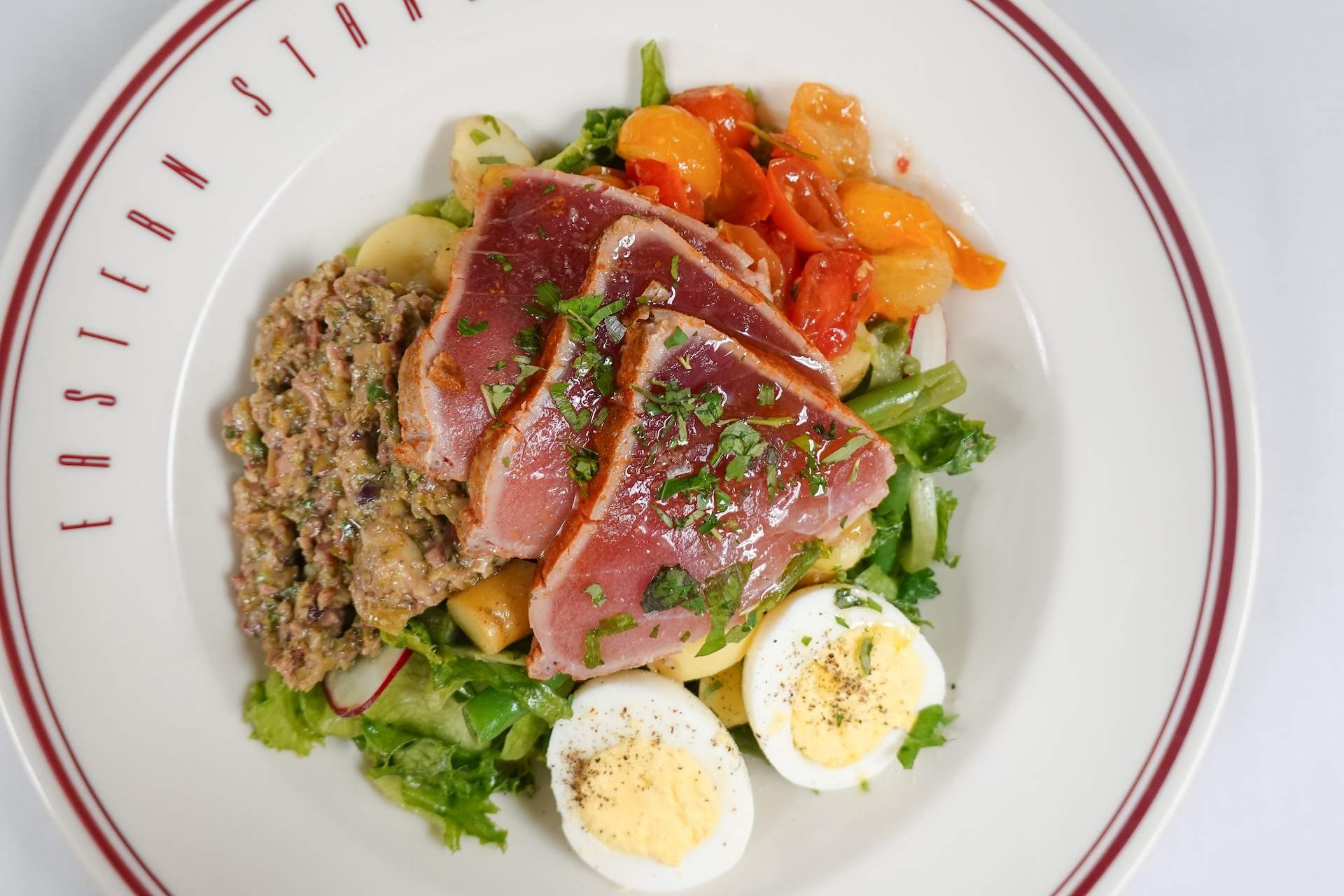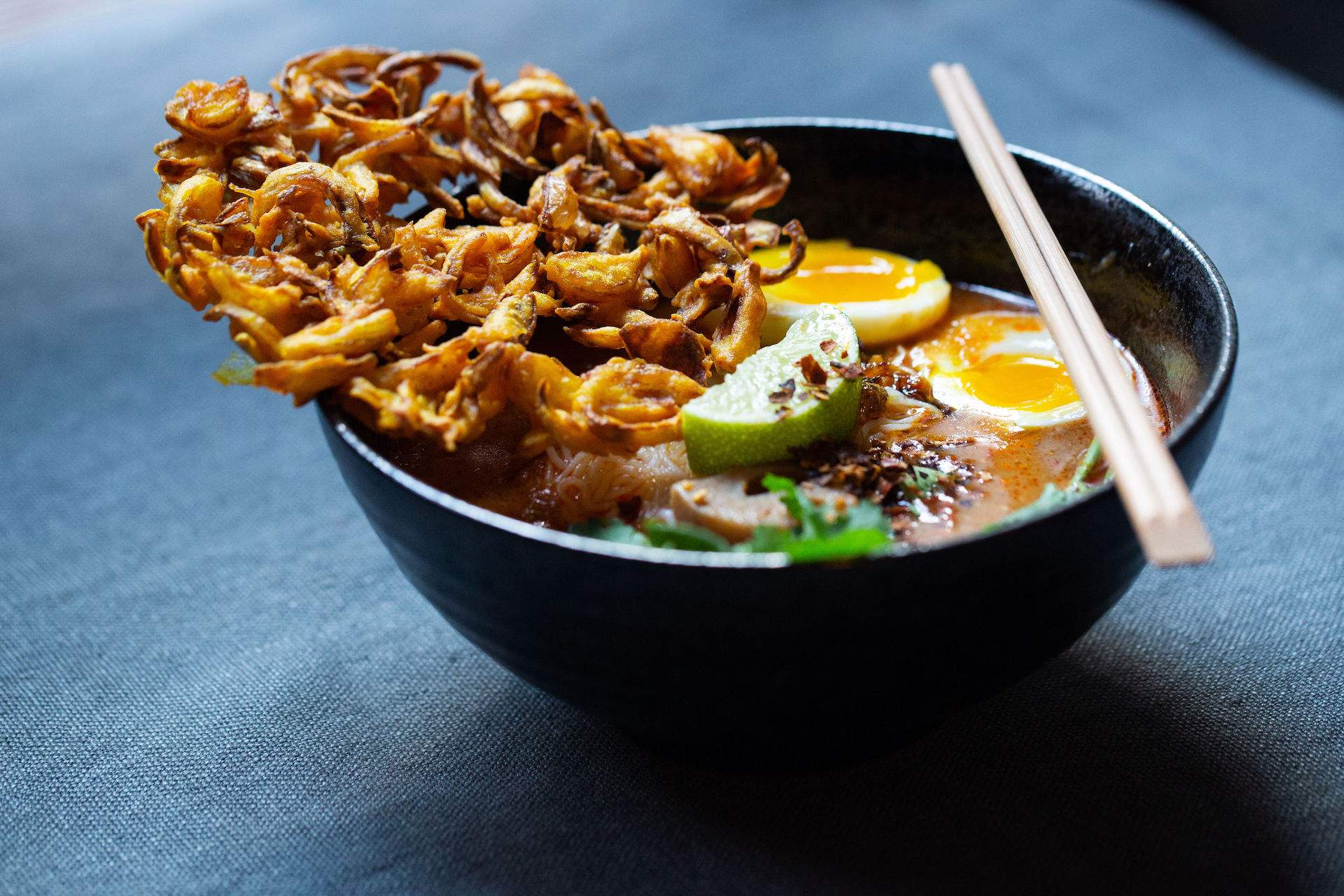When the pandemic temporarily shuttered her Brooklyn vegan restaurant Modern Love, chef Isa Chandra Moskowitz wondered if it would ever open again. “It just seemed like things were as bad as they could get,” she says.
She was nervous to reopen at the beginning of the pandemic, when safety guidance was still hazy, so she brainstormed different ways to bring in money.
Thus the Modern Love Community Cookzine, a one-off vegan food magazine filled with recipes, art, and stories, was born. Moskowitz devised it as a safer way to raise money for the restaurant, trading on her experience as a cookbook author. People could pre-order a digital copy for $5 or a print copy for $50, and the cash would fund the hunger relief work Modern Love was doing as well as help the restaurant reopen when the time came.
In the weeks after pre-orders for the cookzine opened last spring, the zine raised a crucial $24,000 for the restaurant — it was a lifeline in a time of darkness, one of the many ways restaurants have innovated through the pandemic to stay alive.
It all started last May, when the team started cooking free or cheap vegan meals for people in need, serving two goals of helping the community and getting some of their employees back to work. They called the project Modern Love Community Meals, and it went on to feed hundreds of people a week during the height of the pandemic.
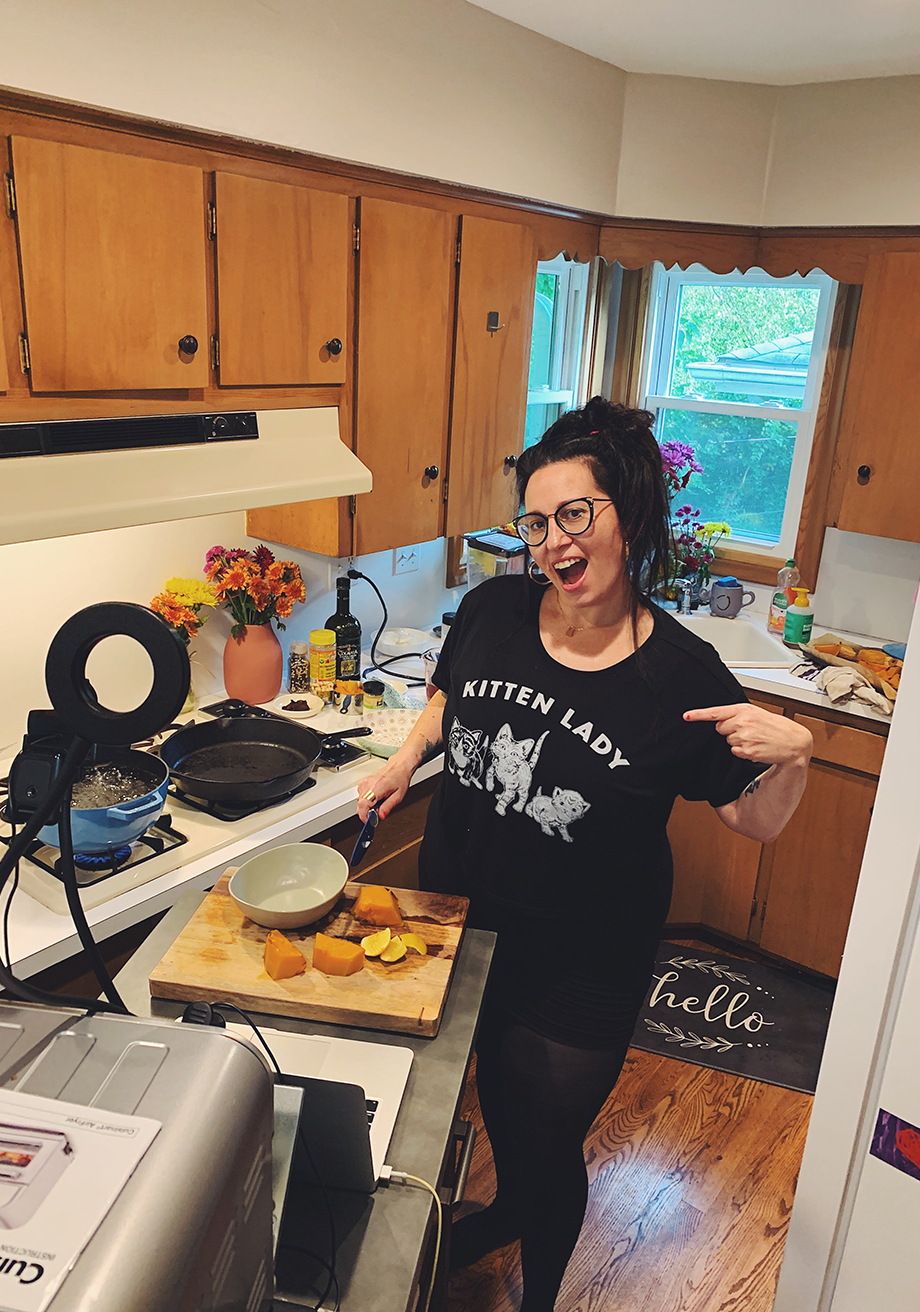
Of course, providing free meals isn’t free; the project needed money to run. So Moskowitz brainstormed fundraiser options. “I actually stole the idea for the cookzine from church groups. Community cookbooks have been used to raise money in a lot of different situations. And that’s when I thought, ‘Oh, yeah, making cookbooks is something I do,’” she says. She has, after all, written ten cookbooks in the past 15 years.
This project also gave her the chance to give more people their jobs back in a safe way. “I had chefs working on the recipes and managers helping to source all kinds of information and figure out where and how to get the cookzine printed,” she says. Moskowitz also hired others in the community to contribute art, take photos, and handle graphic design. Most of these people were able to work at home.
Moskowitz imagined the cookzine as a time capsule of what it was like to cook during the pandemic, and she wanted to bring the vegan community together in its pages at a time when it wasn’t possible to gather in person. So she reached out to a variety of chefs in the greater New York City area to share their recipes and stories. Her goal was to show vegan chefs in the same light other highly regarded chefs are portrayed in magazines. “I feel like it’s really important that vegan cuisine be taken seriously. It’s not just a bunch of store-bought veggie burgers,” she says.
The cookzine features Michelle Carrera, a queer vegan Puerto Rican activist and the founder of Chilis on Wheels; Caribbean vegetable patties from Crown-Heights-based private chef Avis Ambrose; and a recipe for a plant-based version of the pierogi that culinary school instructor and chef Olivia Roszkowski grew up eating in Brooklyn. Of course, Moskowitz’s best-loved recipes also make an appearance, including mac and shews (a cashew-based mac and cheese), black and white cookies, and chickpea cutlets.
After getting off to a strong start, the process of creating the cookzine didn’t go as smoothly as Moskowitz hoped. As a cookbook author, there were many things she understood about publishing, such as recipe development and copywriting, but she was surprised by how much more went into it, such as the printing process. “I didn’t understand paper weights, what kind of paper will look best, or how to work with printers,” she says. “The whole process took longer than I hoped it would.”
But despite delays, it was just six months from the start of the project until physical copies were sent to supporters. All the while, fans of the restaurant were pre-ordering the cookzine, raising money for the community meals work and building excitement for its eventual release in October 2020.
Months after its debut, the cookzine is still selling. “People add it to their food order, and orders come in from around the country for people who love vegan food and want to support us,” she says. The price for a print copy has dropped to $25 and the digital version is now available for free, but money is still rolling in and the tens of thousands raised was pivotal for Modern Love this past year.
Moskowitz hopes the cookzine helps keep awareness about the restaurant up until things return to something closer to normal. But would she do it again?
“It was really hard to put together. I love it, I’m so happy it exists, and it was so much fun, but I can’t imagine doing this again,” she says. It was a labor of love made in response to a once-in-a-lifetime event with another upside: “I hope it gives people something good to read at night.”

Tried them all? Check out other options here.

